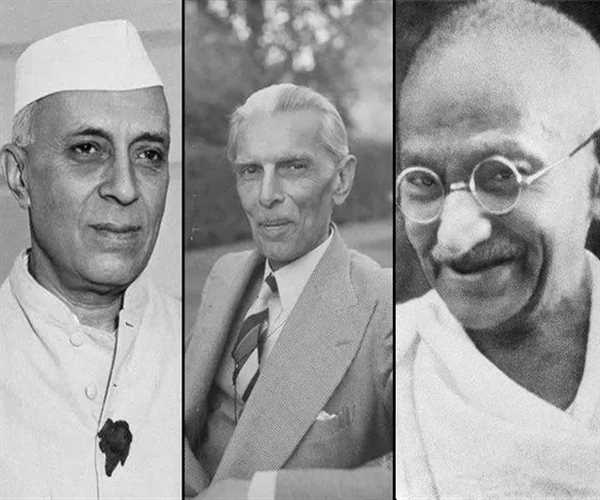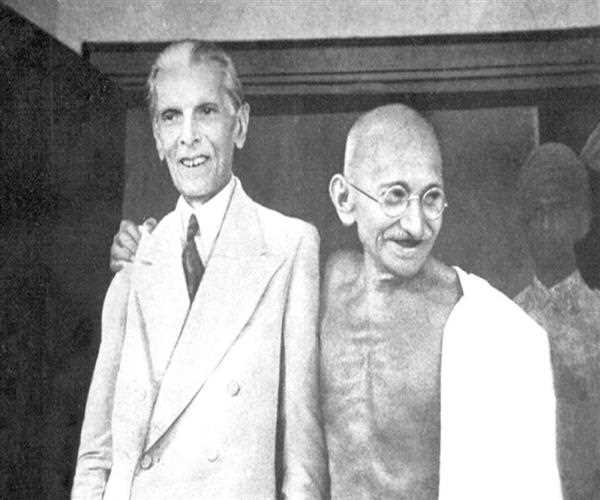
29-Jun-2024 , Updated on 7/4/2024 3:21:34 AM
Who was responsible for the 1947 Partition and massacre? Gandi, Nehru, or Jinnah?
Though they sometimes downplay the terrible reality of the split, our history texts frequently exalt Gandhi's nonviolence and Nehru's vision for a contemporary, secular India. Despite the emphasis on non-violence in history and even sports, my time in Delhi during violent periods showed me that political decisions left India weak and exposed. This indicates that Gandhi and Nehru's actions might have valued their ideals over a united India, leading to the partition and its bloody aftermath.
History often downplays the intricacies of events in favor of simplifying them. After that, Gandhi relocated to South Africa to pursue his non-violent ideology of fighting for Indian rights. But Nehru eventually made his way back to India, where he rose to prominence within the Indian National Congress and promoted modernization and socialism.

Image Credit- Foreign Affairs
Muhammad Ali Jinnah, who initially wanted Hindu-Muslim unity within the Indian National Congress, felt ignored by Congress policies that seemed to neglect Muslim interests. As a result, he joined the All India Muslim League. Congress ignored the growing call for Muslim autonomy under the leadership of Gandhi and Nehru, which fueled tensions and ultimately resulted in a split.
India's political landscape underwent a significant shift in 1915 upon Gandhi's return. His non-cooperation movement against the British gained massive support. Despite setbacks and imprisonment, Gandhi's influence grew, leading the Indian National Congress and the independence movement. Nehru, as Gandhi's political heir, advocated for a modern, secular state.
The idea of a distinct Muslim state was popularized by Jinnah as Hindu-Muslim tensions grew. Jinnah's will to establish Pakistan was demonstrated by the Lahore Resolution of 1940 and the bloody Direct Action Day of 1946. Partition appeared inevitable nonetheless, as a result of Gandhi and Nehru's intransigence towards a united India that did not take into account Muslim desires.
India's 1947 division was a nightmare that resulted in millions of people being uprooted and terrible violence. While Gandhi, horrified by the division and the bloodshed it brought about, persisted in advocating nonviolence until his killing in 1948, Jinnah became the first Governor-General of Pakistan. However, their involvement in the split is generally overlooked in favor of emphasizing their achievements toward independence. In Pakistani narratives, Jinnah is revered as the Quaid-e-Azam, the nation's founding father, while Gandhi and Nehru receive less recognition.
To comprehend Gandhi, Nehru, and Jinnah, one must consider the historical and cultural contexts that produced modern South Asia. The war for independence and partition of India represent the complex interplay of philosophy, strategy, and historical situation, emphasizing nonviolence, moral purity, modernism, and pragmatism.
Their legacies have had long-term consequences for Pakistan's and India's political and social environments. Their thoughts and actions have had a huge impact on the subcontinent's future, acting as sobering reminders of the tragic consequences of division and the arduous decisions that led to it. Finally, Gandhi and Nehru's failings contributed to one of the region's darkest periods.

Student
I am a content writter !
Comments
Join Our Newsletter
Subscribe to our newsletter to receive emails about new views posts, releases and updates.
Copyright 2010 - 2026 MindStick Software Pvt. Ltd. All Rights Reserved Privacy Policy | Terms & Conditions | Cookie Policy